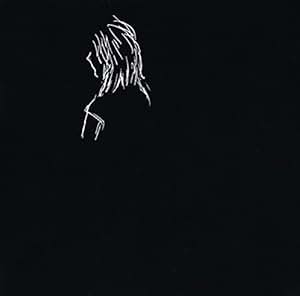From Wikipedia, the free encyclopedia Number Girl Origin Years active 1995–2002 Members Shutoku Mukai Hisako Tabuchi Kentarou Nakao Ahito Inazawa Number Girl ( ナンバーガール, Nanbā Gāru?) was a rock band formed in, in August, 1995 by guitarist and vocalist Mukai Shutoku. They disbanded in 2002 following bassist Nakao Kentarou's departure from the band. Arguably the biggest name in Japanese and major influences on Japanese bands such as, Number Girl played fast, guitar-driven rock influenced primarily by the,,. Over the course of seven years their sound evolved greatly, serving as a basis for Mukai's post-Number Girl project,. Formation Number Girl was formed in August 1995, when Mukai Shutoku decided to form a band to play at a local event. Nada dering hp jadul.
A solo artist at the time, Mukai was briefly involved in one band called 'Number Five'. Learning that his new members were previously in a band called 'Cowgirl', he combined the names, and christened his new band 'Number Girl'. The original incarnation of Number Girl was unsuccessful, and the collaborating musicians quickly left the group. Mukai invited bassist Nakao Kentarou, who in turn invited guitarist Tabuchi Hisako, whom Nakao knew from his former job operating lighting at the Vivre Hall venue. Mukai convinced a fellow Fukuoka scene musician Inazawa Ahito to play drums, finalizing Number Girl's lineup.


The album Sappukei of Number Girl is here. Mogali rekulu online. Come enjoy at KKBOX!
The band self-released two demos, 'Atari Shock' and 'Omoide In My Head', and was also featured on several compilations. Number Girl released their first full-length studio album, in November 1997 on independent label Automatic Kiss, and released their first single, Drunken Hearted, several months later.
Major Label Debut In 1998, the band began playing shows in the area of. Gaining a higher profile in Japan's indie rock scene, the band quickly attracted major label attention, and signed with. In May 1999, their major debut single, 透明少女 (Toumei Shoujo) was released with their major debut,, released the following July. Number Girl quickly gained popularity throughout Japan, playing shows with other high-profile indie acts such as and Eastern Youth. In fall of 1999, Number Girl released the single Destruction Baby, produced by Flaming Lips producer Dave Fridmann, as well as a live album, シブヤROCKTRANSFORMED状態 (Shibuya ROCKTRANSFORMED Joutai).
In 2000 the band again entered the studio with producer and released their third full-length studio album, Sappukei. Fridmann's production helped the band to reach their full potential, and Sappukei served to combine Number Girl's aggressive rock with traditional Japanese sounds. During this time, they embarked on a brief US tour with, playing in small clubs through several cities. After a year of touring, the band again enlisted Dave Fridmann to produce what would become their final studio album, Num-Heavymetallic. Num-Heavymetallic took elements of their previous sound and combined it with Mukai's newly found experimentation.
Unusual rhythms, effects-laden guitar lines, and a vocal style which alternated between punk-inspired grit and spoken word, would eventually be incorporated into Mukai's subsequent band,. Disbanding The band then set out on their largest tour ever, playing over thirty dates, to support Num-Heavymetallic. However, on September 20, 2002, the band shocked fans by announcing their dissolution. The reason behind the band's demise is not entirely clear, although it is widely known that bassist Kentarou decided to leave the band. The other members decided that the band was a specific group, and opted to disband rather than replace Nakao. Number Girl played their final show on November 11, 2002 in.
The recording of the performance would later be released as Sapporo OMOIDE IN MY HEAD Joutai (サッポロOMOIDE IN MY HEAD状態). Following the demise of Number Girl, the members each went on to other projects. Nakao played support for Spiral Chord before joining Sloth Love Chunks.
Guitarist Tabuchi Hisako became a member of and also formed her own band,. Mukai continued performing as both a solo artist with his 'Mukai Shutoku Acoustic & Electric' shows and formed a new band,, alongside drummer Ahito Inazawa. In 2005, Inazawa left Zazen Boys to form band. Toshiba EMI would release several posthumous Number Girl recordings under the title 'Omoide In My Head,' consisting of a best-and-b-sides collection, two comprehensive live volumes, a three DVD set consisting of the band's two earlier live albums, and a rare tracks collection.
Musical Style Number Girl's style prior to signing with Toshiba EMI was a brand of indie rock influenced by 70s punk bands such as, as well as more contemporary band. Although many of Mukai's influences, as diverse as,,, and, would not emerge until after Number Girl's demise, his bandmates' combined musical tastes would serve to define much of Number Girl's sound, despite Mukai's clear role as the creative force behind the band. Is credited as inspiring Nakao Kentarou to begin playing music, but his aggressive, distorted basslines resemble 1980s, such as. Tabuchi's mostly melodic lead playing was contrasted by frenetic sections, obviously inspired. Inazawa, often regarded as one of Japan's best rock drummers, was inspired by new wave bands such as and, although these influences would seldom emerge prior the band's final album. With their 1999 release, 'School Girl Distortional Addict', Number Girl moved towards a much heavier sound somewhat reminiscent of. Their 2000 album 'Sappukei' built on its predecessor, but incorporated a more ethereal quality characteristic of producer.